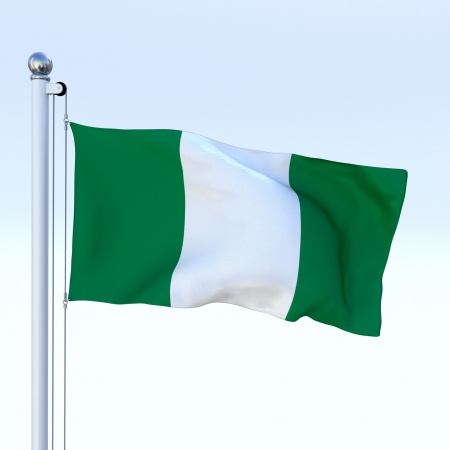Might there have emerged a Third Force in Northern Nigerian politics in Nigeria? That is a Third Force in terms of a platform that is neither essentialist Hausa-Fulani/Muslim platform nor essentialist Middle Belt/Christian platform.

Architect Gabriel Aduku, leader of NCPF
The NCPF is talking of rapid industrialisation but also its commitment to one, indivisible Nigeria and the safeguarding of her territorial integrity. Although the industrialisation and invoked by the NCPF is strictly of the Middle Belt states of Benue, Kogi, Kwara, FCT, Niger, Nasarawa, Plateau, it is still interesting hearing that sort of language from a typical ethno-regional platform in contemporary Nigeria. Hence, the temptation to assume that the NCPF has come as a Third Force. Industrialisation and indivisible Nigeria are not the sort of language used by any of the existing platforms such as The Middle Belt Forum, (MBF); the Arewa Consultative Forum, (ACF) or the Northern Elders Forum, (NEF). But it remains to be seen whether it would be able to transform the industrialisation narrative into a unifying message as to outshine existing platforms and beat back ethno-religious mobilisation in contemporary Nigerian politics.
 It may though not be such an easy ride for even the NCPF it may also not surprise many if the NCPF is able to do that as the regional identity platform known as Arewa Consultative Forum, (ACF), for instance, has been experiencing one crack after another in recent years. In January 2018, its national leader, Chief Paul Unongo resigned and was replaced by Alhaji Sani Zangon Daura, a former minister of Agriculture in the first term of the Obasanjo administration, 1999 – 2003. The cultural-religious configuration of the North is such that leadership of the ACF by a Paul Unongo, has a unifying significance. This is in the sense that he is a Christian from the Middle Belt section of the North. The formation of the NCPF is coming at a time Chief Audu Ogbeh, another Christian from the Middle Belt, is at the head of the ACF.
It may though not be such an easy ride for even the NCPF it may also not surprise many if the NCPF is able to do that as the regional identity platform known as Arewa Consultative Forum, (ACF), for instance, has been experiencing one crack after another in recent years. In January 2018, its national leader, Chief Paul Unongo resigned and was replaced by Alhaji Sani Zangon Daura, a former minister of Agriculture in the first term of the Obasanjo administration, 1999 – 2003. The cultural-religious configuration of the North is such that leadership of the ACF by a Paul Unongo, has a unifying significance. This is in the sense that he is a Christian from the Middle Belt section of the North. The formation of the NCPF is coming at a time Chief Audu Ogbeh, another Christian from the Middle Belt, is at the head of the ACF.
The Northern Elders Forum, (NEF) has been growing in radical, anti-Buhari rhetoric but it is not clear how popular it is down to the grassroots. It has, unlike the ACF, suffered no open cracks yet.
 The religious cum cultural mix of the emergent North Central People’s Forum, (NCPF) also supports reading the platform as a Third Force. Though led by Architect Gabriel Aduku, a former Minister of State for Health and a Christian, it has nearly equal number of Christian and Muslim leaders. Among the Christian leaders are Chief Aduku himself from Kogi State, General Jerry Useni, Colonel David Bamigboye, Chief Steven Lawani, amongst many others. The Muslim leaders, on the other hand, include Ibrahim Mantu, former Deputy Senate President from Plateau State; Ambassador Ahmed Ibeto, Alfa Mohammed, Tajudeen Kareem, etc.
The religious cum cultural mix of the emergent North Central People’s Forum, (NCPF) also supports reading the platform as a Third Force. Though led by Architect Gabriel Aduku, a former Minister of State for Health and a Christian, it has nearly equal number of Christian and Muslim leaders. Among the Christian leaders are Chief Aduku himself from Kogi State, General Jerry Useni, Colonel David Bamigboye, Chief Steven Lawani, amongst many others. The Muslim leaders, on the other hand, include Ibrahim Mantu, former Deputy Senate President from Plateau State; Ambassador Ahmed Ibeto, Alfa Mohammed, Tajudeen Kareem, etc.
The dynamics might still be in the works but the new platform is worth watching, especially if an equivalent from the Southern part were to emerge. The rhetoric of Nigeria breaking-up is one of the most dangerous risks facing the country because such narratives have a way of becoming the reality. This is more so when that rhetoric is not challenged by declarations of commitment to one Nigeria by alternative voices, especially in the traditional and social media.
Proponents of break-up of Nigeria have found as conclusive reason for such argument the observable lopsidedness of recruitment under the Buhari regime. The question though is whether such alone justifies nation breaking, especially in the case of Nigeria where that cannot happen without imponderable suffering for many who have no voice in the matter.




























